
Feline coronavirus (FCoV) is a common multi-strain virus that affects cats. It rarely causes serious symptoms, but it can cause diarrhea and may also lead to a fatal disease called feline infectious peritonitis (FIP). Coronavirus is highly contagious among cats, so it's important to isolate infected cats that show symptoms of illness. Currently, there is no reliable vaccine for FCoV.
Feline coronavirus is not the same virus as COVID-19. Although there are some documented cases of animals testing positive for COVID-19, the virus rarely causes severe illness in animals, including cats. To date, there is no evidence that animals can spread COVID-19 to humans. The risk of pets contracting the virus from humans is more concerning.
Feline coronavirus (FCoV) is a common group of viral strains that can cause illness in cats. Infection is usually asymptomatic, and the virus generally leaves a cat's body after the infection runs its course. However, FCoV can occasionally cause gastrointestinal distress or chronic infection, and certain strains may initiate the development of feline infectious peritonitis (FIP).
Feline coronavirus is usually asymptomatic or causes mild symptoms. Those cases that are symptomatic should be closely monitored for the development of life-threatening feline infectious peritonitis.
Occasionally, feline coronavirus can cause severe diarrhea in a cat, but it is most often a very mild illness.
Uncommon strains of feline coronavirus are associated with the onset of feline infectious peritonitis (FIP), and these cause more severe symptoms. Cats may begin to lose weight and vomit, but their abdomens may grow because FIP can cause fluid accumulation in the abdomen. Pressure on the chest and lungs will cause labored breathing.
If FIP from a coronavirus causes liver damage, then yellowing of the skin and eyes may occur. If the kidneys are affected, then a cat will show an increase in thirst and urination.
Different strains of feline coronavirus can cause this disease in cats, and researchers are not certain about the exact route of transmission. They know it is spread from cat to cat, but this spreading could occur via the following routes:
It is difficult to get a definitive diagnosis of coronavirus due to unreliable testing methods and the inability to differentiate between different strains of coronavirus. Because of this, diagnosis is typically made based on a cat's symptoms.
Since diarrhea is the most common symptom, your veterinarian may collect a fecal sample to rule out parasites or bacterial overgrowth before suspecting FCoV.
Blood tests and X-rays may be performed to look for changes that may indicate the cat is developing FIP, such as excessive amounts of fluid in the abdomen or chest. A sample of the fluid may be obtained to test for FIP.
A coronavirus infection that causes mild symptoms like controllable diarrhea is simply treated symptomatically with medications and supplements to solidify the stool.
However, coronavirus cases that trigger FIP are easily treated and are generally limited to supportive measures to help maintain a cat's quality of life for a limited time.
Currently, studies are underway to explore the efficacy of the antibiotic doxycycline to inhibit feline coronavirus and, in turn, feline infectious peritonitis. While this is not yet common practice, it is worth mentioning to your veterinarian if your cat develops signs of FIP.
Mild cases of feline coronavirus usually resolve with no treatment or minor support for diarrhea. Cats infected with coronavirus strains that cause FIP, however, are at a much greater risk of fatality. Most cats with FIP will die.
Since coronavirus is very contagious among cats, it is important to isolate cats that have it. Make sure to use separate food and water dishes as well as litter boxes, and replace these with new ones after your cat recovers.
A vaccine for FIP is available for cats but its use and effectiveness are controversial. Discuss the pros and cons of this vaccine with your veterinarian.
Feline coronavirus is highly transmissible among cats, but it does not spread to other species. Dogs are affected by canine respiratory coronavirus (CRCoV), for which there is a vaccine. If a cat tests positive for FCoV (or the virus is suspected), isolate the ill cat during the course of the disease to avoid infecting other cats.
Feline coronavirus is not the same type of coronavirus that causes respiratory issues in humans and is therefore not transmissible from cats to people.

10 Obscure, Little-known Canine Facts in Honor of National Dog Day
With National Dog Day upon us, it's time to celebrate everything about our favorite pets—even the weirder stuff. Here are 10 obscure facts about dogs you probably didn't know.
Exploring the Different Types of Pet-Friendly Beaches
Are you looking for pet-friendly beaches? Learn about the different types of pet-friendly beaches, their locations, and tips for visiting them with your pet.
Toxic Chemicals & Household Items That Can Poison Dogs
There are many things in and around your home that can endanger your dog. Learn which chemicals and household items can poisin your dog.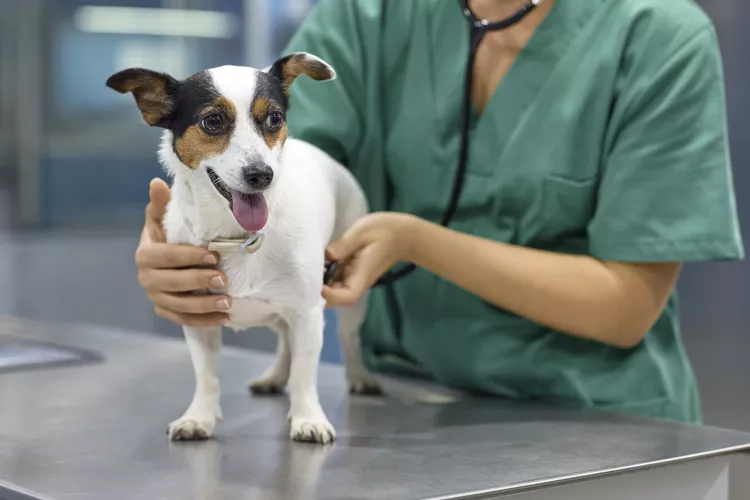
Bronchitis in Dogs
Is your dog coughing and feeling unwell? It could be due to respiratory inflammation called bronchitis. Learn the causes, treatment, and prevention.
Choking in Dogs
A dog can occasionally swallow something incorrectly and start choking. Find out how you can tell if your dog is choking and what you can do about it.
Why Does My Dog Smell So Bad?
Does your dog smell? Find out what could be causing these unpleasant odors and if it's something that needs more than just a bath to fix.
Is Rosemary Safe for Dogs?
Rosemary is used both for cooking and as a supplement with many reported health benefits in people, so you may be wondering if it is safe to give to your dog. Rosemary is considered non-toxic for dogs but with some caveats.
Can Dogs Eat Blueberries?
Dogs can safely eat blueberries. Blueberries are packed with nutrients and can be a great addition to your dog's diet when fed in moderation. Learn more about the benefits, risks, how to incorporate blueberries into their diet, and other fruits dogs can eat.
Dog Food Basics
Are you feeding your dog the best way possible? Check out these dog feeding tips to keep your dog healthy and happy.
Swedish Vallhund: Dog Breed Characteristics & Care
The Swedish vallhund makes for a high-energy and affectionate companion. Learn about the breed's history, health, exercise needs, and more.
Becoming a Show Dog: Getting Started
Do you have the perfect puppy? Have you considered showing her in a dog show? There's much more to showing than showing up! Here's how to get started.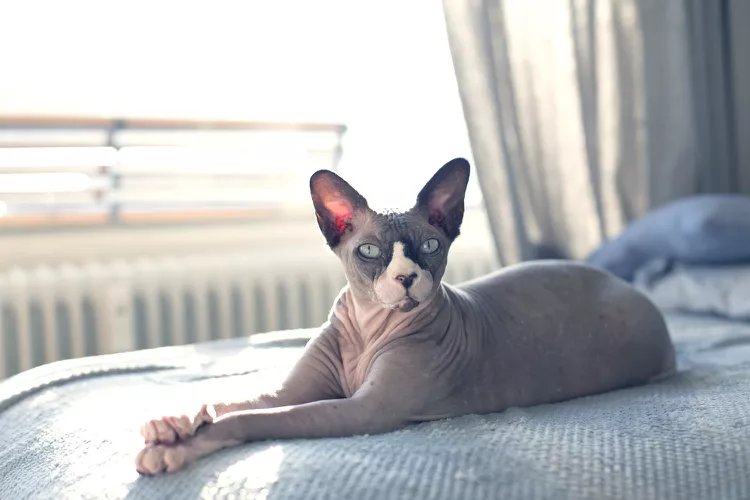
How to Care for a Hairless Cat
Hairless cats make great pets but they aren't without their own challenges and requirements. Read on to learn how to best care for your furless feline.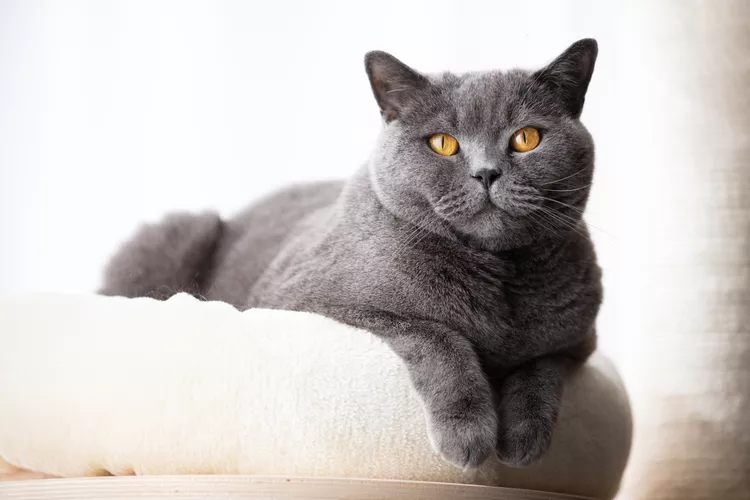
British Shorthair: Breed Profile, Characteristics & Care
The British Shorthair is a calm, affectionate cat that looks and feels like a plush teddy bear. Here's what you need to know about this popular breed, including appearance, temperament, health, and care.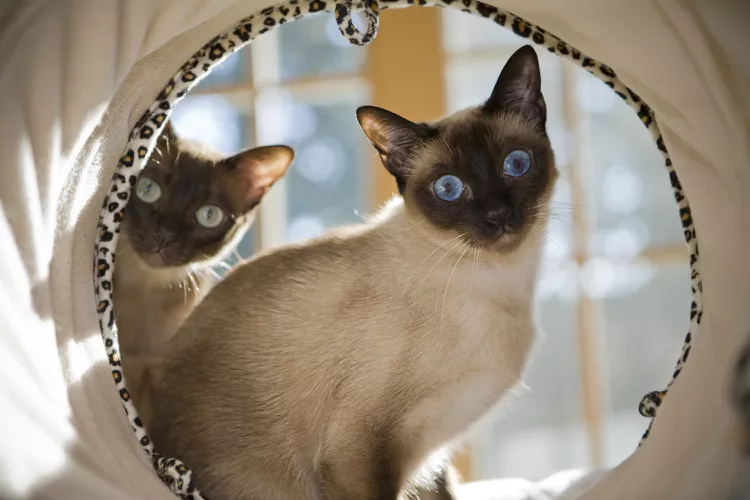
Tonkinese: Cat Breed Profile, Characteristics & Care
The Tonkinese cat is a perfect mix of the Siamese and Burmese—smart, sociable, and sweet. Learn about the Tonkinese breed.
How to Stop Your Cat From Chewing Electrical Cords
Cats are known to pounce and attack inanimate objects, like electrical cords. Learn how to prevent your cat from ambushing objects that may harm it.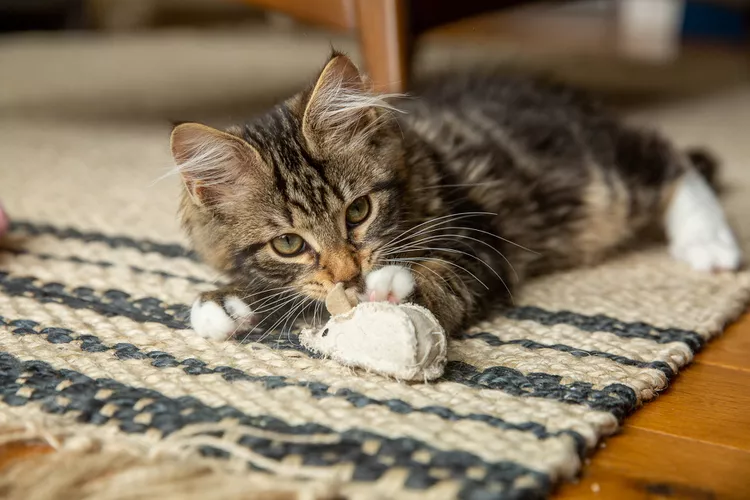
How to Stop Aggression in Kittens
Kittens may show aggressive behavior for several reasons. Sometimes their play gets too aggressive while other times the kitten is afraid or upset. Learn how to spot and curb aggression in kittens.
46 Egyptian Cat Names
Whether inspired by notable Egyptian deities, locales, or pharaohs, Egyptian cat names can bring out the divinity of your noble feline companion.
How to Tell If a Kitten is a Boy or a Girl
If you're wondering whether your new kitten is a boy or a girl, here are three ways to help determine the sex of your cat.
Signs Your Cat Is Aging and When to See the Vet
Expect some changes when your cat ages. Learn to differentiate between normal and potential medical problems for your elderly cat.
Coronavirus in Cats
Feline coronavirus (FCoV) rarely harms cats but can lead to another life-threatening illness. Learn the causes, treatment, and prevention.